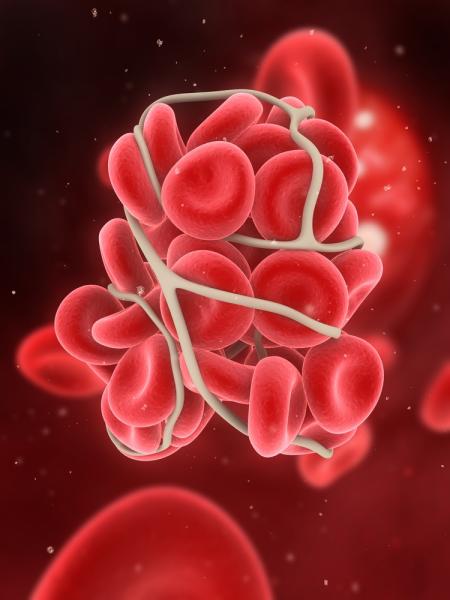People who have a propensity for artery-blocking blood clots are at risk for potentially fatal strokes and heart attacks. These may be folks with a family history of clotting disorders, high blood pressure, recent heart surgery or a history of cardiac atrial fibrillation. Fortunately, there's a treatment for that — the anti-clotting agent warfarin, or coumadin. Coumadin acts by blocking the action of vitamin K, which is needed for production and activity of several clotting factors. But there are plusses and minuses to coumadin. The negative aspect is that coumadin levels have to be checked fairly frequently because if it's too high, the blood may not clot when needed. Another problem is that foods containing vitamin K (such as leafy greens) can counteract the action of coumadin — which may require some dietary restrictions. On the other hand, if there's too much coumadin, and clotting isn't optimal, a person can be given vitamin K to bring clotting into a normal range.
Lately, several new drugs have been developed which can prevent clotting by non-vitamin K-dependent mechanisms. Their benefit is that there are thus no dietary restrictions, and levels don't have to be monitored as coumadin levels do. The main problem with these drugs is that there has been no way to counteract them, as there is with coumadin, so a person who is bleeding from an injury may not have their blood clot as soon as it should, and there's no quick fix. That may be going to change, at least if a recent report in the New England Journal of Medicine is replicated.
Basically this drug, andexanet, acts to reverse the action of newer anti-clotting agents on one particular clotting factor — Factor Xa. The researchers, led by Dr. Stuart J. Connolly from McMaster University in Hamilton, Ontario, treated 67 patients with major cardiovascular disease with andexanet when they suffered acute major bleeding episodes. These patients had been being treated with one of the newer clotting inhibitors, and thus there was concern about their lack of clotting.
About half the patients were bleeding from their gastrointestinal tracts, while most of the rest had intracranial bleeding. The patients received andexanet in an immediate infusion over 15 to 30 minutes, followed by a longer infusion for 2 hours.
The investigators assessed the efficacy of the andexanet after both these infusions, as well as several later time points. They found that for 47 of the patients, the activity of the clotting inhibitors was nearly completely blocked after the andexanet infusions. Further, 12 hours post infusion efficacy was still "good to excellent".
This report is an interim one, and more data will certainly be forthcoming, giving us more insight into the efficacy and safety of this new anti-inhibitor drug. But one thing is clear — we have yet another example of the life-saving potential of genetically engineered drugs.




